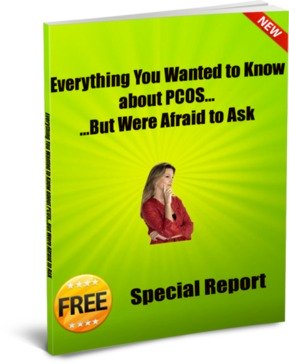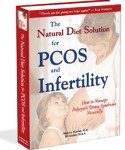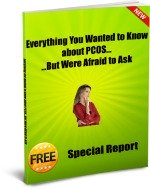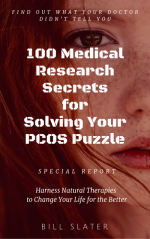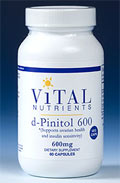PCOS Review Newsletter #46
1) How an Exercise Program Will Help You
2) Are PCOS and Bulimia Connected?
3) A Possible Hidden Reason for Miscarriage
1) How an Exercise Program Will Help You
In a previous newsletter, we shared with you the disturbing news that women with polycystic ovarian syndrome had reduced lung function. Good lung function is absolutely vital. If you can't get an optimal amount of oxygen, your cells cannot function optimally and you cannot be healthy.
We just came across a medical study that is great news for improving your lung capacity. It is the first study to report the effects of a structured exercise program on the lung function of women with PCOS.
Forty-five overweight women were put on a structured exercise program for three months. Another forty-five women were not given an exercise program.
At the end of three months, the exercising women had a 35% improvement in their lung function. In addition, the exercise program helped the women to improve their weight profile, reduce inflammation, and reduce their "insulin resistance" problem.
In contrast, the non-exercising group had no improvements whatsoever.
It should be very clear to you by now that regular exercise is crucial to your long-term success in gaining control over polycystic ovary syndrome.
Why not exercise on a regular basis for three months and see what happens? You may be pleasantly surprised!
To get more details about exercise and how it relates to PCOS, please refer to Chapter 14.1 in our PCOS diet book.
Source:
Vigorito C, et al, Beneficial effects of a three-month structured Exercise Training Program on the Cardiopulmonary Functional Capacity in Young Women with Polycystic Ovary Syndrome, J Clin Endocrinol Metab. 2007 Apr;92(4):1379-84
2) Are PCOS and Bulimia Connected?
If you have an issue with appetite control, this article may be relevant.
Bulimia nervosa is an eating disorder characterized by recurrent episodes of binge eating (rapid consumption of a large amount of food in a discrete period of time, usually less than two hours). The binging is followed by abdominal pain, sleep, social withdrawal or purging (usually by vomiting or laxative use) in order to avoid weight gain.
A recent study has shown that women with bulimia are more likely to have indications of PCOS than normal women. The study also found that bulimic women with PCOS appear to be more sensitive to androgens (male hormones).
The researchers concluded that polycystic ovarian syndrome may promote bulimic behavior. The reason is that androgens have appetite-stimulating effects and could impair impulse control. As you probably know, most women with polycystic ovary syndrome have elevated androgen levels.
High androgen levels are stimulated by too much insulin or "insulin resistance". The good news is that insulin resistance can be effectively dealt with by improving your diet and getting more exercise.
Naessen, S et al, Polycystic ovary syndrome in bulimic women--an evaluation based on the new diagnostic criteria, Gynecol Endocrinol. 2006 Jul;22(7):388-94
3) A Possible Hidden Reason for Miscarriage
You're probably aware that women who have polycystic ovarian syndrome have difficulty ovulating and becoming pregnant. It's also well known that they have a much higher rate of miscarriage than other women.
There are various ideas as to the cause of the miscarriages. We have come across a new possible reason.
Researchers at the Universidad Autonoma de Barcelona in Spain have discovered evidence that your immune system may be involved in reducing the quality of your endometrium. The endometrium is the blood-rich mucus membrane lining the uterus (which is usually shed as your period). The embryo implants into this lining and takes early nourishment from it.
They discovered that infertile PCOS women had increased levels of "anti-endometrial antibodies" or AEA. AEA is a protein that signals your immune system to attack endometrial tissue, thus compromising your ability to have a successful pregnancy.
The elevated AEA appears to be caused in part by "oxidant stress", also known as "free radicals". Oxidant stress is a biochemical process that has gone haywire and creates enormous damage in your body.
Two prime causes of oxidant stress are eating a lousy diet and exposure to chemicals and pollution. The best way to reduce oxidant stress is to consume a diet that is high in antioxidants and to avoid pollution. The diet in our book is high in antioxidants.
You can also find antioxidants in a high quality multi-vitamin/mineral formula or antioxidant formula.
Bottom Line: A healthy diet, high in antioxidants, plays a vital role in any successful pregnancy -- and should be started BEFORE you try to conceive.
Sources:
Palacio JR, et al, The presence of antibodies to oxidative modified proteins in serum from polycystic ovary syndrome patients, Clin Exp Immunol. 2006 May;144(2):217-22
Thought for Today: "If you can DREAM it, you can DO it." -- Walt Disney
PCOS Health Review
This free newsletter gives you original and immediately usable information to help you deal with PCOS.
Get the latest research, tips for improving your health, answers to questions, success stories, and more!
Your e-mail address is totally secure. We will never misuse your information.
Enter Your Email Above to Subscribe Today
and Get Your Questions Answered in this Free Special Report!
